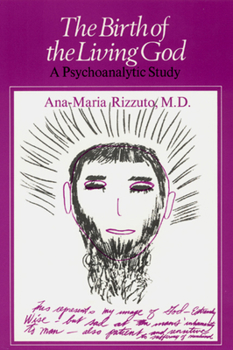Birth of the Living God: A Psychoanalytic Study
Select Format
Select Condition 
Book Overview
Utilizing both clinical material based on the life histories of twenty patients and theoretical insights from the works of Freud, Erikson, Fairbairn, and Winnicott, Ana-Maria Rizzuto examines the origin, development, and use of our God images. Whereas Freud postulated that belief in God is based on a child's idea of his father, Rizzuto argues that the God representation draws from a variety of sources and is a major element in the fabric of one's view of self, others, and the world.
Format:Paperback
Language:English
ISBN:0226721027
ISBN13:9780226721026
Release Date:March 1981
Publisher:University of Chicago Press
Length:256 Pages
Weight:0.79 lbs.
Dimensions:0.9" x 6.0" x 9.0"
Customer Reviews
1 rating
Some Thngs Every Parent Should Know
Published by Thriftbooks.com User , 18 years ago
This is a well-written and accessible--to the layperson--account by Dr. Rizzuto of her study of religious beliefs and how they are formed. Her inquiry rests upon a particular psychoanalytic approach, object relations theory, but her observations are not parochial; their value is not restricted to those who hold to that theoretical position. She reviews Freud's views (negative)on religion and responds to them, out of her own experience with patients. Originally conceived for the purpose of instructing religious educators in the psychological processes that underlie the formation of beliefs--secular as well as religious--Dr. Rizzuto makes clear the importance--once again!--of parents, and other adults, to a child's development toward psychological maturity, sacred and profane.





